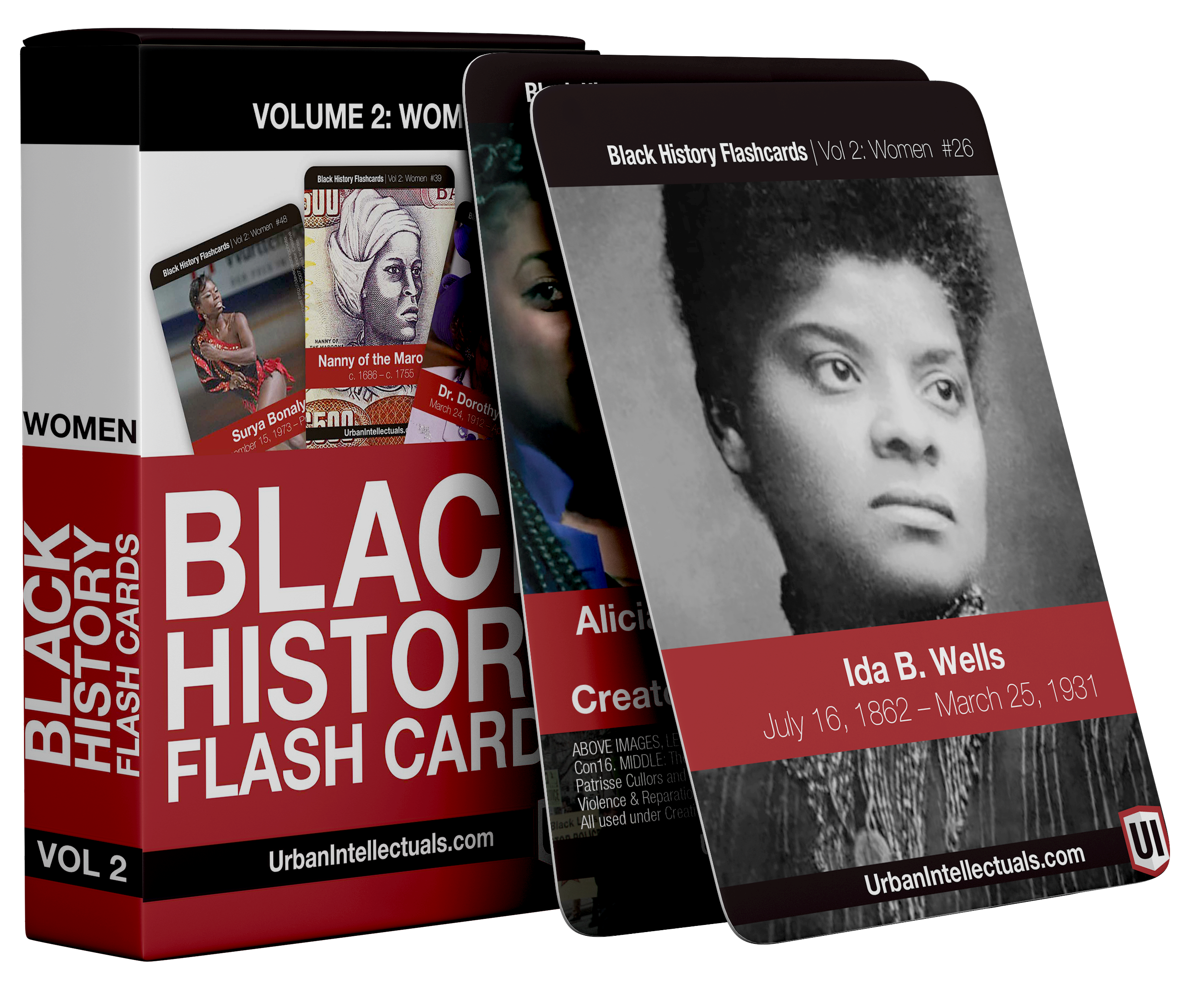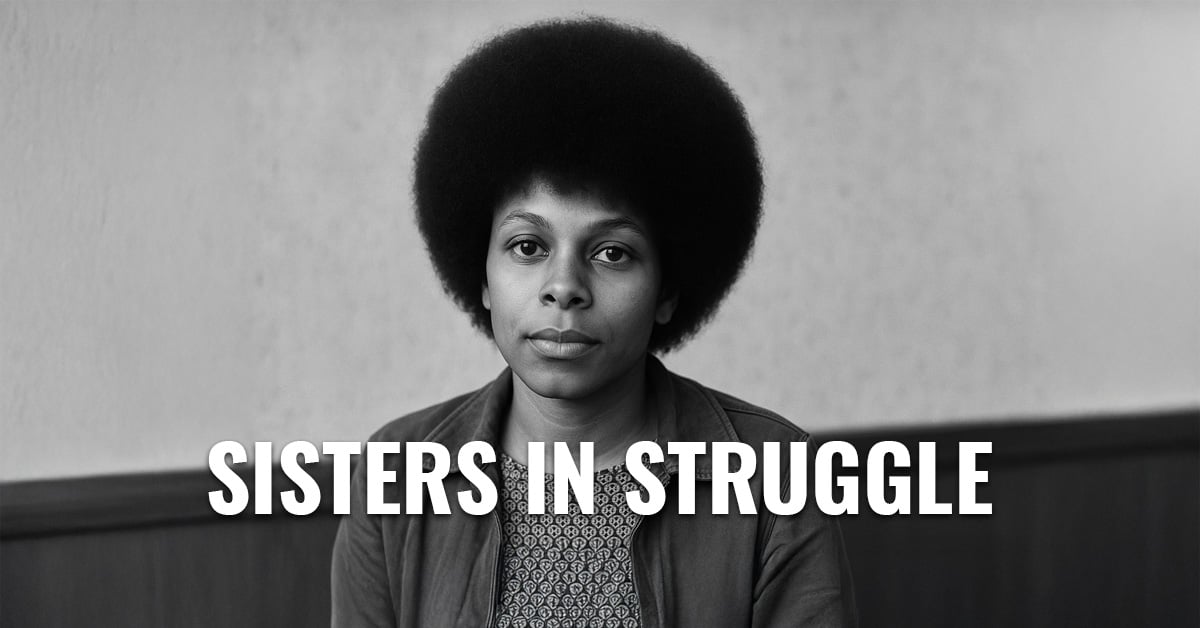Assata Shakur’s name is a beacon in the history of Black liberation — a woman who refused to be silenced, erased, or erased by fear. Born JoAnne Deborah Byron in 1947 in Queens, New York, Assata grew up in a world determined to test the limits of her dignity. From her grandmother’s guidance to the realities of segregation in the South, she learned early that survival required both courage and clarity.
By the time she joined the Black Panther Party and later the Black Liberation Army, Assata had forged her identity as a revolutionary. She adopted the name Assata, meaning “she who struggles,” signaling that her life would be devoted to resistance, to freedom, and to the people she loved.
“The rulers of this country have always considered their property more important than our lives,” Assata once wrote — a statement that captures both the peril she faced and the clarity of her mission.
Her story is one of courage, exile, and unflinching determination — a reminder that Black women have always been central to the struggle for liberation.
Early Life and Awakening
JoAnne Byron’s upbringing bridged North and South, urban and rural, memory and struggle. Visits to her grandparents in North Carolina exposed her to a legacy of Black resilience, even as she confronted overt racism and systemic erasure. These early experiences shaped her understanding of freedom as a responsibility — something to claim, defend, and protect.
In college, Assata’s consciousness expanded. She immersed herself in the politics of the late 1960s, a time when the Civil Rights movement was colliding with the frustrations of a generation demanding more than marches and speeches. She studied figures like Malcolm X, listened to speeches by Stokely Carmichael, and joined activist networks committed to Black self-determination.
“No one is going to give you the education you need to overthrow them,” she later reflected, describing her early realization that knowledge and power were inseparable.
By the early 1970s, Assata had joined the Black Panther Party, a movement combining community programs with political education and resistance to police oppression. She became a teacher, a mentor, and eventually a target. Her life was no longer her own — she carried the hopes, fears, and demands of her people.
The Making of a Revolutionary
Assata’s work with the Panthers was grounded in practical care: free breakfasts for children, health clinics, and political education. But government repression through COINTELPRO made clear that her activism would come at great personal risk. The Panthers were infiltrated, surveilled, and systematically attacked. Assata witnessed firsthand how the state seeks to dismantle movements led by Black people, particularly those led by women.
When the Black Liberation Army emerged, she was drawn to its mission: defend Black communities from state violence, challenge oppression directly, and build autonomous structures where freedom could take root. She understood that liberation was not a single strategy, not a law passed or a policy signed — it was a lifetime’s work of resistance, survival, and vision.
Her identity as a revolutionary was inextricably linked to her gender. She understood that Black women bear the dual burden of systemic oppression and community leadership, and she carried that weight with determination.
The Turnpike Incident and Trial
On May 2, 1973, a routine traffic stop on the New Jersey Turnpike escalated into violence. State troopers pulled over Assata, Zayd Malik Shakur, and Sundiata Acoli. Gunfire erupted. Zayd and one trooper were killed. Assata, wounded, survived.
The trial that followed was steeped in bias. Evidence was weak, testimonies inconsistent, yet she was convicted in 1977 and sentenced to life plus 33 years. The state’s portrayal of her as a criminal obscured a larger truth: she had become a symbol of resistance to a system determined to silence Black voices.
Even in prison, Assata refused to yield. She wrote, mentored others, and studied. She turned confinement into a classroom and herself into a teacher. She wrote:
“Revolution is about change, and the first place the change begins is in yourself.”
Her clarity and resilience turned a personal crisis into a global message about justice, resistance, and the unbreakable power of women in struggle.
Escape and Exile
In 1979, with the help of allies, Assata escaped prison — a deliberate act of survival and reclamation. She eventually settled in Cuba, where she was granted political asylum. In Havana, she continued to teach, write, and connect the struggles of Black Americans to the broader movements for liberation worldwide.
Her 1987 autobiography, Assata: An Autobiography, became a seminal work — not just a memoir, but a manifesto on resistance, survival, and the unrecognized leadership of Black women. She challenged readers to consider that freedom is never granted — it is claimed, defended, and nurtured across generations.
Even in exile, she remained a guiding voice:
“It is our duty to fight for our freedom. It is our duty to win. We must love each other and support each other. We have nothing to lose but our chains.”
A Global Sisterhood of Struggle
Assata Shakur’s story is part of a larger lineage of Black women who carried the weight of freedom on their shoulders. From Harriet Tubman to Angela Davis, from Afeni Shakur to Claudia Jones, women like Assata have led with courage, vision, and unshakable commitment.
Her influence stretches beyond the United States. Activists in Africa, the Caribbean, and Latin America recognize in her life the same spirit of self-determination that powered Maroon communities, anti-colonial movements, and grassroots revolutionary networks. Hip-hop artists, poets, and educators continue to cite her as inspiration — not for violence, but for strategic, disciplined, and principled resistance.
Assata’s life asks a simple, piercing question: if freedom is never given, what lengths are we willing to go to claim it?
Legacy and Memory
Assata Shakur passed away in 2025 in Havana, Cuba, at age 78. Her death was mourned by communities worldwide, who have carried her teachings forward. She is remembered not as a fugitive or criminal, but as a revolutionary, a teacher, and a flame that refuses to die.
Her story reminds us that centering Black women in movements is not optional — it is essential. Her life connects us to struggles across time and geography: the Maroons defending Jamaican mountains, civil rights activists standing against southern terror, hip-hop artists carrying the call for justice through music.
Assata’s legacy endures because it is relational, communal, and spiritual. She shows us that courage is not a moment, but a lifetime of choices.
Reflection Questions
How are Black women’s voices protected and centered in your community?
What risks do Black women take to lead, and how can we share that load?
How do Assata’s words challenge you to act courageously in your own life?
In what ways can you embody the spirit of resistance and care in your community today?
Explore Her Legacy
Honor revolutionary women and deepen your study:
👉🏾 Black Women Flashcards (Vol. 2) – explore leaders like Assata Shakur, Harriet Tubman, and Fannie Lou Hamer.
📚 Get your deck today »
Join the conversation at Sankofa Universe, share your reflections with #ReclaimTheFlame, and keep her story alive — because freedom is not given, it is claimed, defended, and passed forward.
Celebrate Women’s History Month with stories that inspire.
Collect: Black History Flashcards Vol. 2: Women

Add these to your collection and pass the power forward.
💬 Let’s Talk:
Had you heard of Queen Nanny before this? What lessons can we take from her leadership today?
👇 Drop a comment and share this with someone who needs to know our real history.


















0 Comments